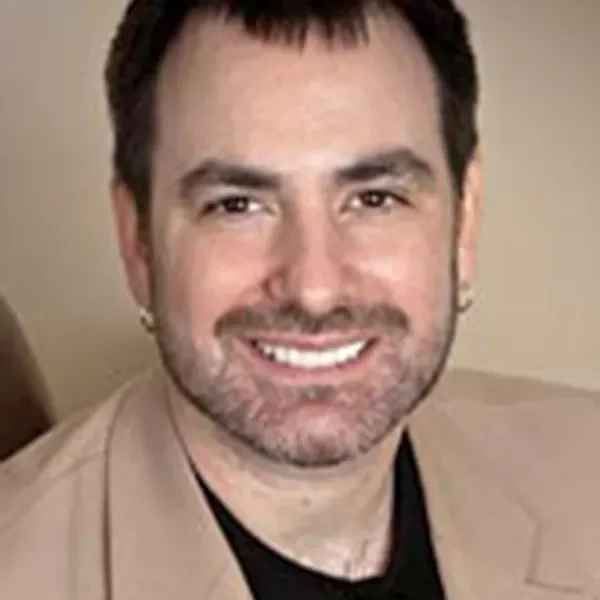We Accept:







Serving Texas Since 1999
Our psychologists and counselors work with couples, kids, individuals and families in the Waco, TX area.
We’re accepting new patients in Waco, TX.
Texas Whole Life Counseling was co-founded by James and Dr. Heather Robbins in 1999. The goal was to bring together trained, licensed psychologists and therapists with a wide-range of personal, educational and clinical backgrounds. All with the purpose or providing Texans access to high-quality healthcare for mental and emotional issues.
Our practice offers patients in Waco expert treatment for many common issues, including anxiety, depression, panic attacks, PTSD, eating disorders, relationship issues, and more.
We strive to create a comfortable, non-judgemental environment for all our patients, where they can share and grow as people. We’re accepting new patients in Waco, TX.

We provide counseling for a variety of mental and emotional health conditions and issues. We’re accepting new patients in Waco, TX.
Depression &
Anxiety
Our counselors can help you manage and overcome depression, anxiety, panic attacks, post-traumatic stress disorder, bi-polar disorder, eating disorders, and obsessive-compulsive behavior.
Relationships &
Family Dynamics
Interpersonal relationships can be difficult. We offer couples counseling, family counseling, and adolescent and teen counseling in a safe, comfortable, and non-judgmental space.
Career &
Life Coaching
Our counselors here to help you in all aspects of your life, from career coaching and life coaching to weight management and overall mental and emotional health and wellness.
Other Counseling Services
Texas Whole Life Counseling offers a wide-range of other counseling services, including chronic pain management, Christian counseling, medication evaluation and management, and more.



Find a qualified psychologist or counselor in Waco, TX
It’s easy to get started. Just find a counselor and make an appointment. Although we accept most major Texas insurance, acceptance and network status may vary by counselor. Use the filters below to find a counselor that fits your needs or call us at (972) 755-0996.
Frequently Asked Questions
We are licensed in Texas, and provide mental health services to patients in Waco and surrounding areas, including Robinson, Hewitt, Crawford, China Spring, Valley Mills, Abbott, Hillsboro, Clifton, McGregor, Moody, Riesel, Mart, Marlin, Temple, Killeen and Corsicana.
Does therapy really work?
In 1995, Consumer Reports conducted a study examining the efficacy of therapy. Of the 4,000 therapy clients who responded, nearly 90% reported that they were managing life better after getting help. Those individuals who reported the most discomfort and upset at the beginning of treatment reported the most improvement from psychotherapy.
Some of those surveyed were treated with both psychotherapy and medications such as antidepressants, etc., whereas others were treated with medication alone or “talk” therapy alone. Interestingly, the therapy only group reported just as much improvement as the medication only group. In addition, this study found that therapy which lasted more than six months was significantly more effective than shorter-term therapies. Clients whose treatments were limited by insurance company policies had worse outcomes than those who did not have such limitations.
Statistics aside, nearly one hundred years of experiential evidence has been gathered regarding the efficacy of psychotherapy. Mental health professionals have documented case after case in which mental and emotional distresses were successfully overcome, broken relationships were repaired and the general quality of life vastly improved. These statements are not as easy to prove through strictly statistical means, although much empirical research has been conducted that does support the efficacy of psychotherapy. (This is why more and more insurance companies are increasingly covering mental health treatment these days.) That said, although the majority of therapy clients report significant benefits from treatment, therapy is not for everyone.
In the spirit of scientific investigation, the only way to genuinely evaluate the efficacy of therapy may simply be to keep an open mind, try a few sessions and see for yourself.
How long will I need to be in therapy?
As psychological needs, wants and capacities vary among individuals, there is no easy answer to this question. In general, however, short-term therapy is typically best-suited to individuals who have very specific goals and needs, such as overcoming a certain phobia, adjusting to a recent career change or giving up unwanted habits such as smoking, overeating, etc. The duration of this treatment tends to be anywhere from six weeks to three months, during which the therapist may be relatively directive, often employing cognitive-behavioral techniques, working with the client to cultivate more conscious, goal-oriented patterns and behaviors.
In contrast, long-term therapies tend to be less structured in approach, and last three months or more. Although specific goals and behaviors are targeted, long-term psychotherapy takes the time to go deeper and understand the origins of unwanted feelings and behaviors. This approach can alleviate acute emotional issues, but long-term therapy is also particularly well-suited to addressing more subtle emotional issues, such as pervasive feelings of dissatisfaction or emptiness, a lack of passion for one’s daily life or stagnation within one’s intimate relationships. Psychodynamic psychotherapy works well within the long-term context, encouraging the patient to explore many aspects of her personality, uprooting self-defeating beliefs and limiting behavioral patterns.
Although it is a good idea to have a basic understanding of short- versus long-term psychotherapy, you need not make this decision yourself. In the first few sessions, the therapist will work with you to better understand your goals and basic personality structure and will suggest a plan of treatment.
How often should I see a counselor?
There are no ready-made answers for this question, as individuals differ widely in their psychological wants and needs, financial resources and overall personality structures. Among the various treatment options, however, a common meeting format involves once or twice-weekly visits for 50 minute sessions.
Although coming less frequently (some clients come every other week, for example) can still be effective, the regular weekly meeting schedule allows for a real momentum of change to be established, as well as fostering a more dynamic and intimate relationship between the therapist and client.
How can I measure my progress in therapy?
The earliest signs of progress in therapy often manifest as increasing awareness of the various ways in which one is “stuck.” Relatively early in treatment, the client may begin to recognize self-defeating patterns or habits of thinking, feeling and behaving without necessarily being able to change them immediately. Later, after watching these habits at work and discussing with the therapist the causes and effects of these habits, the individual is able to make concrete changes and let go of old patterns. As this self-actualization process deepens, the client begins to feel more natural, spontaneous and at ease in all areas of life. Genuine emotions come more freely and relationships deepen. Old patterns of worrying and obsessing become much less disruptive.
Along the way, however, there are likely to be difficult times in treatment, and it is not uncommon for the client to experience occasional periods of increased confusion or anxiety—at times possibly feeling angry with, resentful toward, or distrustful of the therapist. Ironically, although such times may be difficult, they can also be some of the most encouraging signs of therapeutic progress and real-life change. If you at times feel frustrated with the therapy process, openly discuss these feelings with your therapist as he/she is trained to use these doubts as powerful treatment tools rather than distracting obstacles.
What if I don’t share the same belief system or life circumstances as my therapist?
It is common for therapy clients to be concerned regarding significant differences in his or her background and that of the therapist. The client may feel, for instance, that he or she maintains a strong belief in religion, philosophy, etc., that is not shared by the therapist. Similarly, differences in age, gender, sexual orientation, ethnicity and overall life stage, can cause the client to wonder how the therapist could possibly relate to him or her. A trained therapist usually works with all kinds of individuals from widely varying backgrounds. The sharing of specific beliefs or circumstances is not nearly so important as an understanding of how those background factors directly and indirectly impact the happiness and satisfaction of the client. At the same time, the therapist strives to understand the unique “worldview” of each client, and is sensitive to the enormous influence of culture and related life factors and experiences.
The therapist, it could be said, functions as a kind of mirror. Rather than working to “fix” the client by directly steering him or her toward the “right” belief or behavior, a good therapist simply reflects the obstacles that client is encountering from some new perspective. The client is the only absolute authority when it comes to his or her own life. Although the therapist may offer opinions and viewpoints from time to time, it is always up to the client to decide what is truly best for him or her.
What if I get too dependent upon, or attached to, my therapist?
A common misconception regarding psychotherapy is the fear of losing one’s independence and autonomy. This fear stems from the mistaken notion that the therapist somehow takes over the client, making important life decisions for him or her, telling him or her how to feel, and so on. The role of the therapist is more that of an expert consultant than it is an authoritative boss.
The therapist helps the client to find the confidence to function more and more independently and confidently in all aspects of life. To see the ways in which the individual may feel unnecessarily dependent on others, including the therapist at times, is sometimes a goal of psychotherapy.
At the same time, it is common for the client to re-experience some early aspect of childhood parental relationships within the context of therapy. In psychodynamic psychotherapy, for example, this process is extremely helpful in resolving early conflicts with parents and other authority figures. Openly discussing concerns you have about becoming overly attached to the therapist is the best, most direct way to resolve misgivings.
What if I begin to have negative feelings toward my therapist?
Negative feelings toward the therapist are common at times during treatment, and may even be essential to make certain types of positive changes. In psychodynamic psychotherapy, the client’s early conflicts with his or her parents are explored and, to some degree, re-experienced with the therapist. For example, an individual with a distant father might interpret the therapist beginning the session a few minutes late one day as a personal rejection. Similarly, a client with an overly critical mother is likely to interpret certain therapist comments as harsh or judgmental. Both of these examples would likely result in the client feeling anger toward the therapist.
In the safe environment of therapy, the client is encouraged to fully experience and accept his or her negative feelings arising toward the therapist as a result of re-encountering old family conflicts. Helping the client to experience and examine these feelings is simply part of the “job description” of being a therapist. Such client feelings are neither “rude” nor unfair. Rather, as the client begins to feel negatively toward the therapist, he can examine the ways in which he attempts to avoid, ignore or displace these feelings. Recognizing the underlying patterns that were unknowingly adopted in childhood helps the client to understand them from a more mature perspective and make constructive, conscious changes.
What if I develop sexual feelings for my therapist?
This is an extremely common client reaction to the therapy process. In many ways, the therapist is a kind of stunt double for the client’s past and current relationships—romantic ones included. As the client develops a close bond with the therapist, sexual or romantic feelings sometimes arise. Much as is the case with negative feelings toward the therapist, the client’s sexual feelings toward the therapist can be adaptively utilized to further the treatment process. The client should feel free to discuss such feelings openly, as the therapist realizes they are not to be taken “personally,” but rather as a displacement of unresolved relationship issues.
It should be emphasized that, although it is appropriate for a client to discuss his or her sexual feelings toward the therapist, the therapist should not indicate a reciprocation of such feelings in any way. In helping the client explore his or her sexual feelings within this safe context, the therapist provides a kind of relationship “laboratory” in which the client can observe, experiment with, and re-assess his or her unresolved interpersonal issues.
Can I use my insurance?
Texas Whole Life Counseling offer both in-network and out-of-network counseling. Our clinical psychologists, therapists and coaches are in-network providers for many common Texas insurance plans, including Blue Cross Blue Shield of Texas and United Health. For more information regarding the insurance we currently accept, check out our Insurance and Rates page.
What is the difference between a psychologist and a counselor?
Texas Whole Life Counseling employs both licensed psychologists (LPs) and licensed professional counselors (LPCs). Both are trained to offer specialized counseling in a number of areas for individuals, couples, and families. While both professions are trained to deal with mental health issues, a clinical psychologist pursues a different academic path than a counselor.
Clinical psychologists receive a doctorate degree, which generally requires about six to seven years of education following a four-year bachelor’s undergraduate degree. They are designated as a “doctor,” and are typically trained in research and testing as well as offering therapy. Psychologists study behavior, cognitive and emotional processes, while evaluating, diagnosing, and treating various mental health issues and concerns.
Licensed Professional Counselors (or LPCs) receive a master’s degree, which generally requires three to four years of education following a four-year bachelor’s undergraduate degree. Unlike clinical psychologists, the training for these licensed mental health professionals focuses more specifically on counseling, rather than research and testing. Like psychologists, counselors also provide psychotherapy, as well as diagnose and treat a wide range of issues.
Neither psychologists nor counselors prescribe medication. However, all of our therapists at Texas Whole Life Counseling are trained to closely coordinate treatment with specialized psychiatrists when appropriate, providing a comprehensive, multi-layered team approach.
The “Whole Life” Approach
In most cases, it is less important that you meet specifically with a psychologist versus a counselor. Instead, it’s more essential that you are matched with a therapist specializing in treating your specific issues and circumstances. This is why we offer a “whole life” approach to treatment, offering therapy and coaching customized to the individual needs and wants of our clients.
How does virtual counseling work?
Virtual counseling is no different than in-person counseling. You just get the convenience of meeting with your therapist in the comfort of your own home or business. No traffic. No waiting rooms.
What are the differences between psychologists, counselors, therapists and coaches?
Although sometimes used interchangeably, there are important differences between these types of mental and emotional health providers. Psychologists, therapists and counselors all treat mental, emotional, and behavioral health, and they have advanced degrees, hours of training, and a license to practice.
Psychologists
A psychologist has a doctoral degree (such as a PhD or a PsyD). Typically, a psychologist’s training goes deeper into the science, theory and practice of psychology and human behavior. More severe mental illnesses such as psychosis or personality disorders typically require a psychologist for treatment.
Counselors
Counselors are licensed emotional and mental healthcare providers. They often have post-graduate degrees and specific titles and qualifications like Licensed Mental Health Counselor (LMHC) or Licensed Professional Counselor (LPC). Although they can treat a wide-range of issues, counselors often have specialize in specific areas, such as marriage, sex addiction or grief.
Therapists
Therapist is a broad term used for any clinician who treats mental and emotional health issues. It is often used as an umbrella or a synonym for these other terms. For example, most therapists will have a master’s degree, but a psychologist with a doctorate degree can also be referred to as a therapist.
Coaches
A coach is a general term used by a professional who helps clients grow as a person and accomplishing specific goals, such as career advancement, weight loss, or being more mindful. Coaches do not generally treat mental health disorders, although counselors, therapists and psychologists can offer coaching services.
The convenience of Virtual Therapy in Waco with our counselors in Texas.
Virtual therapy (sometimes called virtual counseling or tele-psychology) sessions are just like in-person sessions. At Texas Whole Life Counseling, we offer the same clinically effective treatments—including Acceptance and Commitment Therapy (ACT), Cognitive Behavioral Therapy (CBT), and Psychodynamic Therapy—just like if you meet with your therapist in person. The only difference is you can meet with your therapist or coach online in the comfort of your own home or office in Waco. For your convenience, we offer appointments during normal business hours, evenings and weekends. Click here to make an appointment.
Texas Whole Life Counseling’s trained and licensed psychologists and counselors offer virtual therapy sessions to individuals, couples, kids, and families in the Waco Texas area!
Cognitive-Behavioral Therapy in Waco, Texas. Acceptance and Commitment Therapy in Waco, Texas. Individual Counseling in Waco, Texas. Family Therapy in Waco, Texas.
We treat patients for a variety of mental health conditions including depression disorder, anxiety disorder, addiction, ADHD, anger management, bipolar disorder, chronic pain management, eating disorders, family issues, identity issues, LGBTQIA+ issues, panic attacks, obsessive-compulsive disorder (OCD), PTSD, trauma, relationship problems, stress management, self-esteem problems, sex addiction, trust issues, and more.
All of our counselors and psychologists live in Texas. So even though you’re seeing a therapist online, it won’t be someone from India. It’ll be one of our licensed, local counselors.

Getting started takes just a few minutes and we can usually see new patients in as little as 3 days.
Making an appointment is quick and easy. After you submit your request, our office staff will send you information on how to fill out new patient paperwork, gather necessary documentation, and confirm your appointment. If it’s currently normal business hours, we’re usually in touch within one to two hours. You can request to be seen ASAP for a same-day or next-day appointment. Appointment availability may be influenced and limited by factors like your insurance plan and if you’d like to see a specific counselor.










